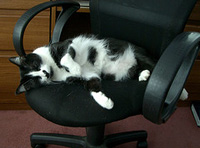- Hide blocks
- Full screen
- Standard view
Writing & Speaking Task (to send to the tutor) for ING05.
Tarea para ING05.
| Enunciado. |
|---|
|
| Criterios de puntuación. Total 10 puntos. |
|
Cada tarea se puntuará sobre 10 puntos. Para superar cada una de ellas habrá que obtener un mínimo de 5 puntos. Las tareas de comprensión (escrita y oral) son de corrección automática. Para las tareas de expresión (oral y escrita) se adjunta un Anexo con los criterios de corrección, que puedes encontrar en el apartado de recursos generales del curso, junto al glosario del módulo en la página de inicio del curso, etiquetado como Assessment and Grading Criteria. |
| Recursos necesarios para realizar la Tarea. |
| Todo lo aprendido en la unidad. Repasa los contenidos de la unidad tantas veces como sea necesario antes de realizar la tarea. |
| Consejos y recomendaciones. |
|
| Indicaciones de entrega. |
|
Para la tarea de expresión oral elaborarás un único documento de audio. El archivo se nombrará siguiendo las siguientes pautas: Apellido1_Apellido2_Nombre_ING05_TareaOral Para la tarea de expresión escrita elaborarás un único documento de de texto. El archivo se nombrará siguiendo las siguientes pautas: Apellido1_Apellido2_Nombre_ING05_TareaEscrita Una vez elaborados ambos documentos, los comprimirás en un único archivo, que será el que subirás a la plataforma de la forma establecida para ello, como solución a esta tarea, y que nombrarás de siguiente manera: Apellido1_Apellido2_Nombre_ING05_AmbasTareas.zip Asegúrate que los nombres no contengan la letra ñ, tildes ni caracteres especiales extraños. Así por ejemplo la alumna Begoña Sánchez Mañas para la quinta unidad del MP de ING, debería nombrar los archivos de la siguiente manera:
En cuanto a las tareas de comprensión oral y escrita, son de corrección automática, y debes completarlas respondiendo a los cuestionarios que hay en la página principal del curso, justo debajo del enlace a esta tarea. (Reading Task y Listening Task). |
Anexo.- Licencias de recursos.
| Recurso (1) |
Datos del recurso (1) |
Recurso (2) |
Datos del recurso (2) |
|---|---|---|---|
 |
Autoría: Gord Webster. Licencia: CC by-sa 2.0. Procedencia: |
 |
Autoría: J.B. Hill. Licencia: CC by 2.0. Procedencia: |


